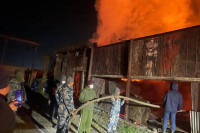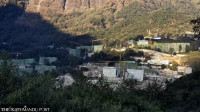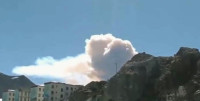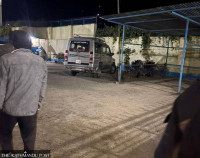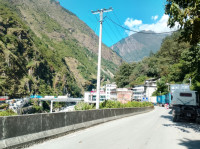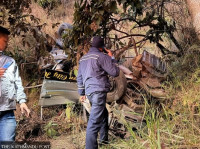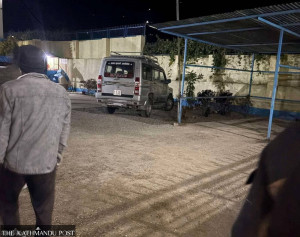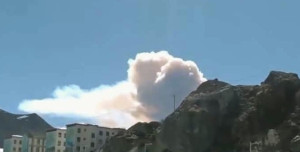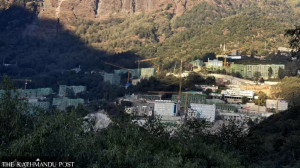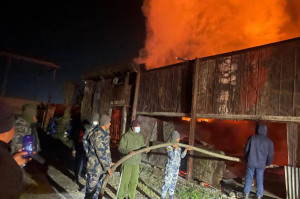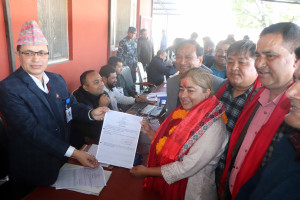Bagmati Province
Bote community demands unhindered access to fish in Chitwan park rivers
Park officials are reluctant to issue licences to more Bote people because of conservation efforts targeted at preserving the aquatic life in the area.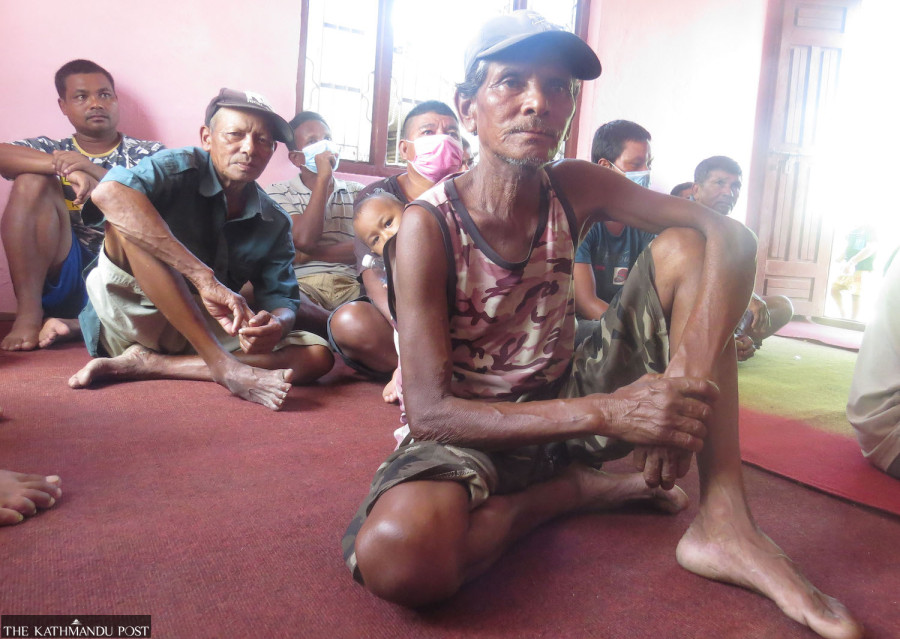
Ramesh Kumar Paudel
Members of the Bote community living in Chitwan National Park have once again requested the authorities to allow them to resume fishing in nearby rivers and rivulets. Members of the fishing community have asked the government not to interfere in their traditional occupation.
The Bote people need a licence issued by the Chitwan National Park to fish, as the rivers and rivulets where they have been fishing for generations are within the park area.
“Around 100 Bote families in wards 13 and 22 of Bharatpur Metropolitan City used to fish in the Rapti, Narayani and Riu, among other rivers and rivulets, before the establishment of the Chitwan National Park. Now only 30 Bote families are allowed to fish in the rivers,” said Indira Bote, the chairperson of Chitwan chapter of Nepal Bote Society.
On behalf of the community, Indira demands fishing licences for all Bote families in the area so that they can continue their traditional occupation without any hassle.
According to Indira, the population of Bote people in Chitwan district is 3,500.
“They mainly live in Patihani, which lies on the bank of Rapti River,” she said. “The CNP, the country’s first national park established in 1973, issues licences to the communities whose livelihood depends on fishing. However, only a few of the Bote people have got the licence.”
Park officials, however, are reluctant to issue licences to more Bote families because of conservation efforts targeted at preserving the aquatic life in the area.
“We stopped issuing new fishing licences to the Bote community from the fiscal year 2018-19. Those who have already received their licence renew the permit every year,” said Lokendra Adhikari, the information officer at the CNP. “If all Bote people receive licences, the river and streams will be filled with fishermen and that would harm the environment.”
The national park renewed the fishing licence of 200 people in the current fiscal year. Among them, 101 people are from the Bote community.
“The park has issued licences to only those Bote people who rely solely on fishing for a living,” said Adhikari.
However, for the local Bote people living in Patihani, Madi, Jagatpur, Meghauli, Dibyanagar, Gunjanagar and Mangalpur, seeking a livelihood elsewhere is not easy.
“Most of the Bote people are uneducated to get employment opportunities elsewhere and do not have the capital or the skills to start something new. So many of them are dependent on fishing for their livelihood,” said Indira. According to her, only about 10 to 15 percent of the total Bote population has received fishing licences while the other people are engaged in daily wage work.
Bina Bote, the central coordinator of Nepal Bote Women Society, says they have been demanding for the past 17 years that the authorities allow the Botes to return to the rivers and rivulets.
“We have requested all the government authorities in the district as well as at the centre. The representatives of the International Labour Organisation were also informed about the issue when they visited the Bote settlements in the past. The forest ministers of several governments were urged to address the problems of the Bote community,” said Bina. “We have a long-standing dispute with the park administration regarding the fishing licence. But nothing has happened so far. In fact, the number of Bote people caught while out fishing has increased of late.”
Conservationists say unchecked fishing in the rivers is harmful to wildlife and the environment and insist on better wildlife conservation efforts inside the park area.
The banks of Rapti and Narayani rivers are the main habitat of gharials, which prey only on fish, says Bed Bahadur Khadka, former assistant conservation officer of the park.
“It will be detrimental to gharial conservation efforts if the rivers are empty of their prey. The park is focused on managing fish for gharials. This is why fishing is restricted in the rivers and streams of the park,” Khadka said.
The fish population in the rivers of Chitwan has seen a gradual decline, says Chhabilal Neupane, a rights activist in Chitwan who advocates better conservation efforts and less exploitation of aquatic life.
“Fishing is the traditional right of the Bote community. No one can infringe upon that but there must be a sustainable solution to the issue,” said Neupane. “Overfishing in the rivers will not be helpful, even for the Bote people, in the long run. The government should teach income-generating skills to the Bote community and employ them.”
Bishnuraj Mahato, ward chairman of Bharatpur-22, says the local unit provides scholarships and security allowances for the Bote people and trains them in income-generating skills but members of the community still fall back on fishing for income.
According to Lokendra Adhikari, assistant conservation officer of Chitwan National Park, the park has already spent around Rs1.09 billion on buffer zone development since the fiscal year 1996-97.
“We don’t know what will happen to us if the fishing ban continues,” said Suresh Bote, a resident of Bharatpur-31. “The government, conservationists and the park authorities must think about the survival of our community too.”




 16.12°C Kathmandu
16.12°C Kathmandu1.jpg)
